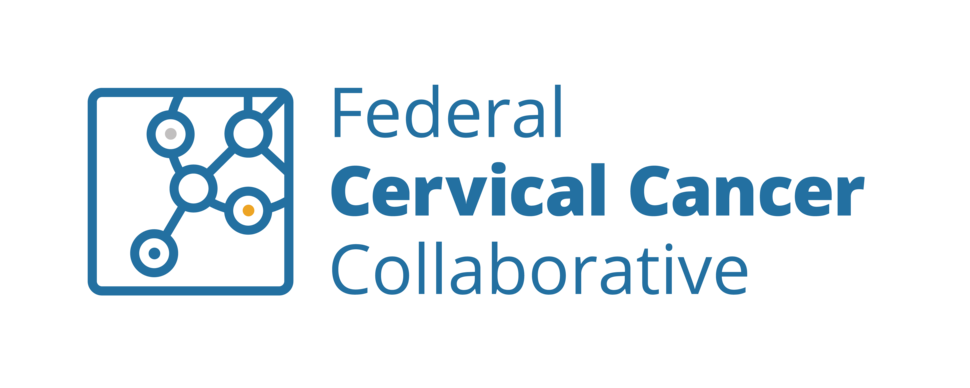Federal Cervical Cancer Collaborative for Safety-net Settings of Care
, by Jennifer K. Loukissas, M.P.P.
Investigators from the Clinical Genetics Branch and staff from the DCEG Communications Team have partnered with the U.S. Department of Health and Human Services (HHS) Health Resources and Services Administration (HRSA) Office of Women’s Health, and several other agencies and offices to bring cervical cancer prevention and management guidelines into safety-net settings of care more swiftly.
The partnership, known as the Federal Cervical Cancer Collaborative (FCCC), is an offshoot of the Cancer Moonshot℠ effort to Accelerate Cervical Cancer Control, and focuses on reducing the persistent disparities in cervical cancer through more equitable cervical cancer vaccination, screening, and management among geographically isolated and economically, and medically vulnerable populations.
“DCEG is excited to participate in this important work and share our expertise in cervical cancer prevention through screening and management, as well as our commitment to reducing health disparities and increasing health equity,” said Nicolas Wentzensen, M.D., Ph.D., M.S., senior investigator, and Deputy Chief, Clinical Genetics Branch, and head, Clinical Epidemiology Unit.
FCCC collaborators in the NCI Division of Cancer Control and Population Sciences led a comprehensive landscape analysis describing the facilitators and barriers to effective cervical cancer screening in low-resource settings and for at-risk populations.
The FCCC will produce a provider toolkit for use in safety-net settings of care and a federal opportunities report based on input from a wide-range of stakeholders engaged through a series of roundtables held virtually over the course of several months in 2022. Other partners include the NIH Office for Research on Women’s Health, HHS Office of Population Affairs in the Office of the Assistant Secretary for Health, HRSA Office of Intergovernmental and External Affairs, and the Centers for Disease Control and Prevention Division of Cancer Prevention and Control.
